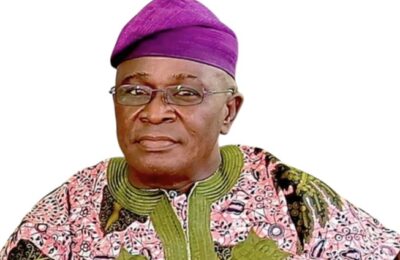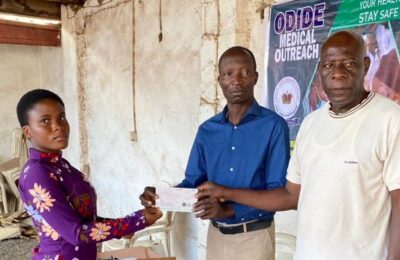The land is rich, but her sons beg. The rivers flow, but her people thirst. Kogi East, once the heartbeat of political relevance in Nigeria’s Middle Belt, now limps like a forgotten child—stripped of both its economic dignity and political voice. The question isn’t whether Kogi East is suffering. The question is—how long shall we keep mourning when we can start building?
In this long cry for what I call politico-loconomy—a home-grown blend of political autonomy and local economic revival—we revisit the lost dreams, question the deaf silence, and invoke both ancestral wisdom and modern economics to call our people to wake up before dawn becomes dusk forever.
When Power Died and Hunger Reigned
Once upon a time, political power was born in Idah, grew in Ankpa, and found roots in Dekina/ Bassa. The Igala Kingdom stood not only as a cultural empire but as a political giant. From Dr. Stephen Achema to Senator Nicholas Ugbane, from the roaring voices of the Assemblies of God to the military precision of Col. BZ Sanni, the East stood tall—politically firm, economically grounded. Now? Now, it is neither East nor beast—it is scattered dust.
Even the dead whisper in Idah. “We warned them,” they murmur from the tombs of forgotten heroes. “We said, never trade power for crumbs. Never turn your staff of office into firewood.” Yet here we are—rubbing shoulders in Lokoja not as kings, but as beggars waiting for appointments.
As the political economy scholar Peter Evans once warned, “Embedded autonomy is the key to development”—meaning political institutions must serve their people with integrity, not as tools for personal greed. What is happening is a true confirmation of what Aristotle said “Man is a greedy animal”. But a greedy one who is buried in one casket. Kogi East lacks this embeddedness. The politicians are not embedded. They are expatriates in their own land—loyal to Abuja, deaf to Idah.
Politico-Loconomy: What Is It?
This is not just a cry for power. It’s a demand for what I term politico-loconomy—a marriage between grassroots economic development and political self-determination. You cannot claim power if your economy is tied to the feeding bottle of the federal center. You cannot demand respect if your sons have no farms, no factories, and no future.
As Nobel laureate Amartya Sen wrote in Development as Freedom, “Poverty is not just lack of income; it is lack of choices.” Kogi East today is choice-starved. It has land but no leverage. It has youths but no utility. It has ideas but no investment. Without loconomy—local economic power—we shall remain a constituency of statistics, not of strength.
The solution lies in reviving our agro-economy, empowering youth-led tech and trade hubs, and strengthening communal ownership of economic resources like cassava, yam, coal, fish, and palm oil. But for this to happen, political sincerity must first return.
Power Doesn’t Reside in Ballots Alone
The Igala proverb says, A man who gives away his hoe will soon beg for yam.” Political power is our hoe. But over the years, we gave it away to political ignorance and jelousy where our own people hates to see the success of a fellow Igala man. These men didn’t lose elections. They sold destinies.
Apostle Ayo Babalola once said, “When the spiritual power of a people is bought, their political strength is buried.” What we face in Kogi East is not just electoral defeat; it is spiritual sabotage. Our leaders became gods unto themselves, while the real God left the land.
It’s time to rebuild—not just our roads, but our roots.
Lessons from Elsewhere
Look at South Korea. Post-war, it was poorer than Nigeria. But through what Professor Ha-Joon Chang called “a developmental state with political will,” they transformed their villages into global tech centers. Or consider Rwanda, where President Paul Kagame fused local governance with digital innovation. If Rwanda, a genocide-scarred nation, can rise—why not Kogi East?
Why can’t our kings become incubators of youth enterprise instead of collectors of homage? Why can’t our churches and mosques invest in cooperative farming instead of louder microphones?
Even Islamic scholar Sheikh Yusuf Al-Qaradawi once said, “Economic justice is part of faith.” And Bishop David Oyedepo reminds us, “Until you take responsibility, you are not qualified for authority.” The East has been dodging responsibility for too long. We speak in tongues, yet our policies are dumb.
What Needs to Change
First, we must institutionalize Homegrown Development Boards in all nine LGAs—tasked with one thing: funding, mentoring, and scaling local businesses. These boards should be headed by honest traditional leaders, youth representatives, and diaspora Igala investors. No government interference.
Second, our politicians must stop building boreholes and start building balance sheets. Instead of distributing rice during elections, let them give out tractors and grant access to off-taker markets.
Third, we must decolonize our minds. As Frantz Fanon warned, “The oppressed will always believe the worst about themselves.” We must unlearn inferiority. We must teach our children that being Igala is not a burden—it is a badge.
Fourth, religious institutions must lead this revolution. Jesus fed 5000 not with sermons, but with loaves and fish. The Church must now feed futures, not just faith. Mosques must become micro-finance hubs, not just prayer points.
And lastly, we must document our pain. Writers, scholars, media voices from the East must turn our tears into testimonies. From Ejule to Ugwolawo, from Anyigba to Ibaji, let there be a loud cry for politico-loconomy that even Aso Rock can hear.
This Is More Than Politics—It’s Prophecy
Prophet TB Joshua once said, “When the truth offends, it exposes your heart.” If you are angry reading this, good. You are awake.
This is not a political memo. It’s a prophetic call to rebuild what our fathers fought for and what our children deserve. The days of sitting on the fence are over. The harvest is here, but the East lacks harvesters.
Our universities in the East must stop producing job seekers. Let Prince Abubakar Audu ( previously Kogi State University, Anyigba) become the MIT of agro-tech in Nigeria. Let Federal Polytechnic Idah launch the first indigenous fish-processing machine. Let our markets become export zones, not just exchange centers.
Let elders return to mentoring. Let women be seen as economic queens, not election dancers. Let our youths burn incense of innovation, not yahoo yahoo cult blood.
The Land Is Not Cursed, the Leadership Is
The Eastern land is not barren. It is our mindset that is. Our strength is buried in nepotism, tribal vendetta, and spiritual laziness. Until the East unites under one economic vision, we will remain slaves in the house our fathers built.
As Pastor Chris Oyakhilome thundered: “Any nation that cannot develop its people will eventually donate its people to developed nations.” That is our story—our children are now Uber drivers in London while their grandparents beg in Anyigba.
But there is still hope.
The Time Is Now
We are not asking for pity. We are demanding purpose. We are not looking for messiahs. We are gathering stones to build altars and industries. We are not writing this for applause. We are doing this because the fire of our ancestors won’t let us rest.
The perpetrators of our downfall will read this. Some will laugh. But let them know this: the East is watching. And the East is rising.
This is our kairos moment—our appointed time.
Let the farmers rise. Let the scribes write. Let the carpenters hammer. Let the politicians retreat. And let politico-loconomy—this holy fusion of political dignity and economic power—finally take root.
Because until Kogi East feeds itself and elects itself, it will forever serve others who neither understand its pain nor respect its potential.
– Inah Boniface Ocholi writes from Ayah – Igalamela/Odolu LGA, Kogi state.
08152094428 (SMS Only)




